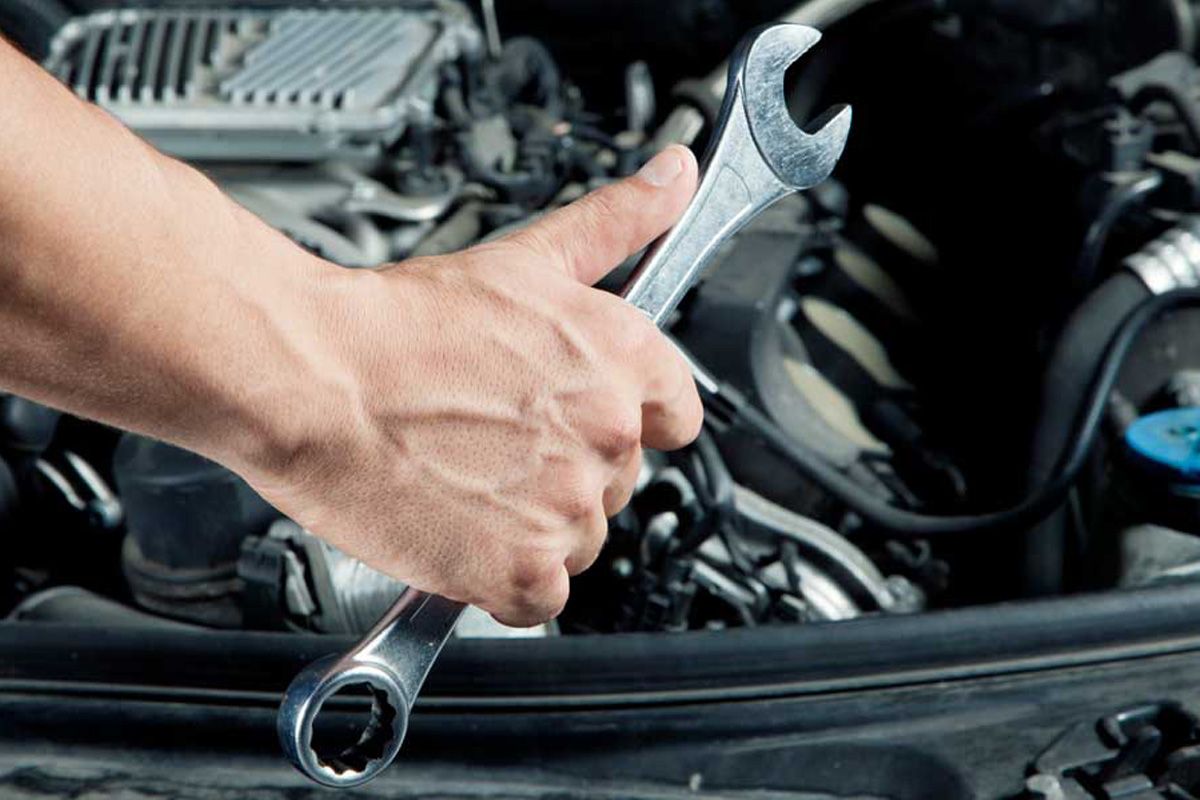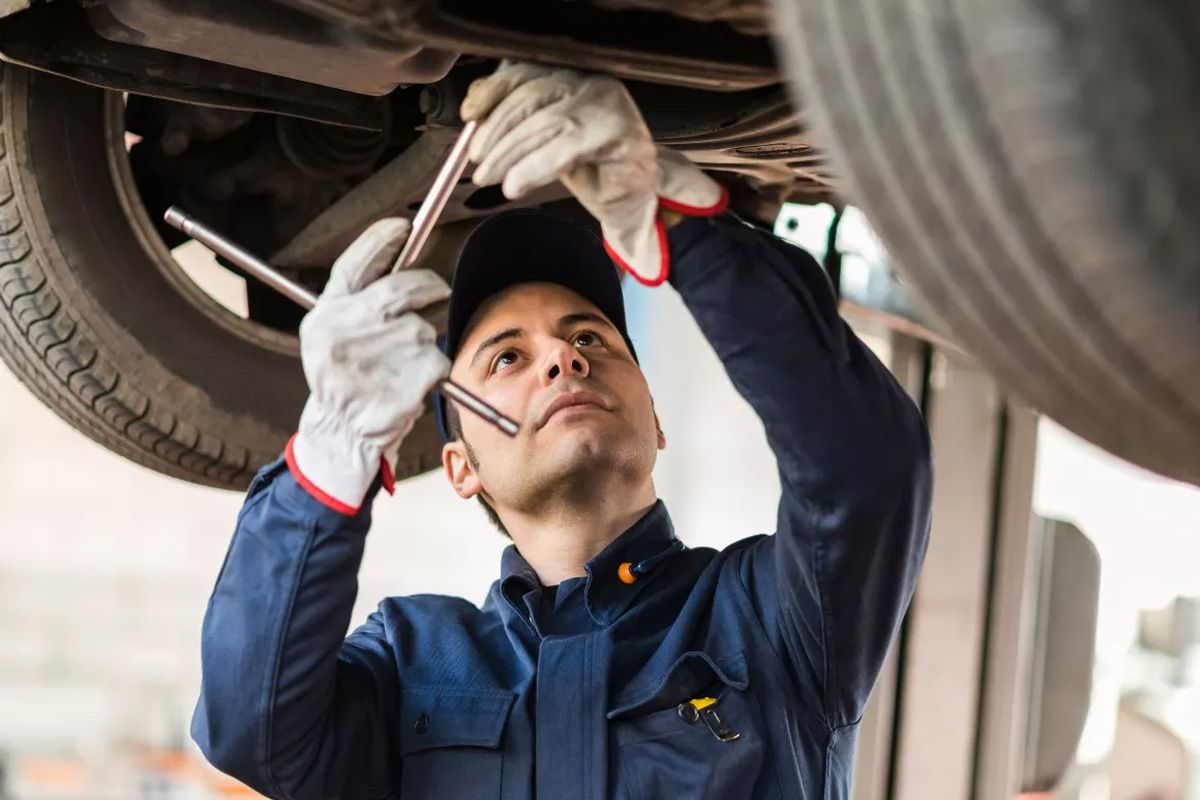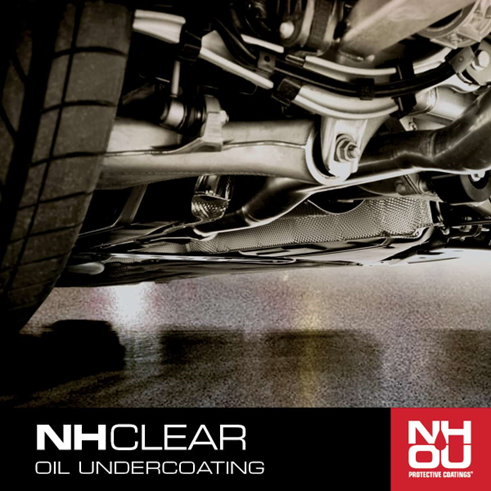No matter what strange noise your car is making, it almost always turns into the ca-ching of your mechanic’s cash register gobbling up your cash. Because car repairs are expensive, it’s tempting to let them slide. But putting off or skipping certain repairs can be a costly and even dangerous game.
Here are five car repairs you might be tempted to skip in order to save a few bucks. But we’ll show you how making that call could cost you a lot more in the long run. Most figures provided are based on service estimates from RepairPal, an online provider of independent and unbiased repair estimates, and are for the Washington, DC area. Be sure to visit their site to see how much you can expect to pay at your local mechanic shop.
1. Installing Fresh Brake Pads
Common sense dictates that you shouldn’t neglect your car’s brakes. Still, when it comes time to replace brake pads, it’s easy to look the other way. After all, brake pads tend to wear gradually, so it may take some time before you notice changes in braking performance. Delaying the fix, however, can prove costly and dangerous.
“If you neglect your brake pads and shoes, your brakes will ultimately fail,” write the pros at Car Talk. “Even before that happens, however, you can cause damage to other, more expensive brake parts, such as rotors, drums and calipers. In other words: a stitch in time … saves you from helping your mechanic with a boat payment later on.”
Rotors are especially costly to repair or replace. As they rub against worn brake pads, rotors become warped, which makes it tougher to stop the car (if you feel your car shudder as you brake, you probably have warped rotors). Fixing them requires that they be turned or smoothed out by a mechanic — if, of course, they can be salvaged at all.
How much can you save by staying on top of your brake pads? Lots. According to RepairPal, replacing the front brake pads on a 2010 Honda Civic can cost anywhere from $144 to $207. If, however, the front rotors need to be resurfaced, the price increases to $208 to $289. Still, that’s cheaper than replacing a pair of front brake pads and rotors – which costs a whopping $372 to $485.
2. Changing Your Oil
Not changing your car’s motor oil on a regular schedule can be detrimental to its health.
Oil is the lifeblood of your engine. It reduces friction, lessens wear, provides lubrication, forms a seal between the pistons, rings and cylinder walls while helping to cool engine parts. Without the cleaning action of new oil, carbon and varnish buildup would be toxic to the engine.
Fortunately, an oil change is easy enough to do yourself. It’s also cheap enough to have a pro do it for you. While most service stations recommend that your car has its oil changed every three months or 3,000 miles, many new cars can travel up to twice that distance without needing one. To find out how long your car can go between oil changes, check your owner’s manual.
After you’ve figured out the recommended oil change interval for your car, stick to it. RepairPal reports that an oil and filter change on a 2010 Ford Fusion costs between $27 and $45. The price of a new engine? That’ll run you four figures.
3. Replacing Your Air Filter
Changing an air filter is relatively inexpensive. However, ignoring a clogged one can cost you big bucks at the pump and the mechanic shop.
This critical member of the performance system requires careful attention if the engine is to operate at peak performance and deliver maximum fuel efficiency. The air filter screens out harmful dirt and grime that would otherwise find its way into the engine. This grit can and does cause internal engine wear. It can score cylinder walls and stick to close-tolerance mating surfaces, and cause bearing and lubricating surface wear.
According to a recent study by Oak Ridge National Laboratory, a new air filter can increase the fuel economy of a carbureted engine by two to 14 percent, depending on how clogged the old filter was. While there’s no fuel-economy gain for fuel-injected engines, a new air filter does enhance vehicle performance — providing six to 11 percent faster acceleration time.
So what will it cost? RepairPal says that having a pro install a new air filter on a 2010 Chevrolet Cobalt will run $47 to $69. Or you can buy one at your local auto supply store for under $40 and install it yourself — it’s really easy to do. Either expense is pocket change in comparison to the long-term cost of decreased fuel economy. It’s also a bargain compared to the cost of what may happen if you continue to drive with a dirty air filter. For instance, a dirty air filter can prevent sufficient air from reaching your car’s engine, fouling the spark plugs. RepairPal reports that replacing a set of those on a Cobolt will cost $105 to $138.
4. Replacing Your Fuel Filter
To keep your engine running at optimal performance, impurities need to be kept out. While the air filter prevents airborne matter from polluting the engine’s components, the fuel filter does the same for whatever sediment may be in your gasoline. Like the air filter, the fuel filter needs to be replaced from time to time in order to prevent a much costlier fix.
The fuel from the fuel tank is typically pumped from a pump inside the fuel tank to the engine. In the line between the fuel tank and the engine, a fuel filter is typically present to help protect the fuel system. As a fuel filter slowly becomes clogged, the restricted fuel flow could lead to poor acceleration and reduced engine performance as well as other issues.
On older cars, a fuel filter is relatively easy to replace because it’s easy for mechanics or car owners themselves to get to. On newer cars, it’s a more complex job. More complexity means more money, which makes this repair tempting to skip — despite the fact that it can lead to dirty fuel injectors, which could make your car stall or refuse to start altogether.
Don’t skip it. The difference in price between replacing your fuel filter and fuel injectors is significant. According to RepairPal, replacing a single fuel injector on a 2010 Nissan Altima can run as high as $437. Replacing a fuel filter, on the other hand, starts as low as $88.
5. Installing New Headlight Bulbs
Here’s one car repair on our list that is really easy to ignore. After all, a burned-out headlight won’t eventually lead to engine failure or to your transmission falling out. It could, however, lead to a costly fine or accident.
“As well as your car or truck may be running, if you can’t see where you’re going you’re not going to enjoy driving it,” explains Popular Mechanics. “Your night visibility is totally dependent on your vehicle’s headlights. If one headlight is burned out, your night visibility is cut in half.”
Indeed, failure to keep your headlights working can be an expensive proposition. First, if a police officer sees you with a burned bulb, you’re going to get a ticket. That fine could make paying a few dollars for a new bulb seems like chump change. Second, broken lights increase your risk of being in a crash. Even if you don’t harm yourself or anyone else, you’ll still have to deal with the headache of getting your car fixed.
Who needs that? Replacing a burned bulb is easy and inexpensive. You can order one online for as low as five dollars or, if you’re not handy, have a pro do it for you. RepairPal estimates that the fix will cost between $56 and $77 on a 2010 Volvo XC70.






